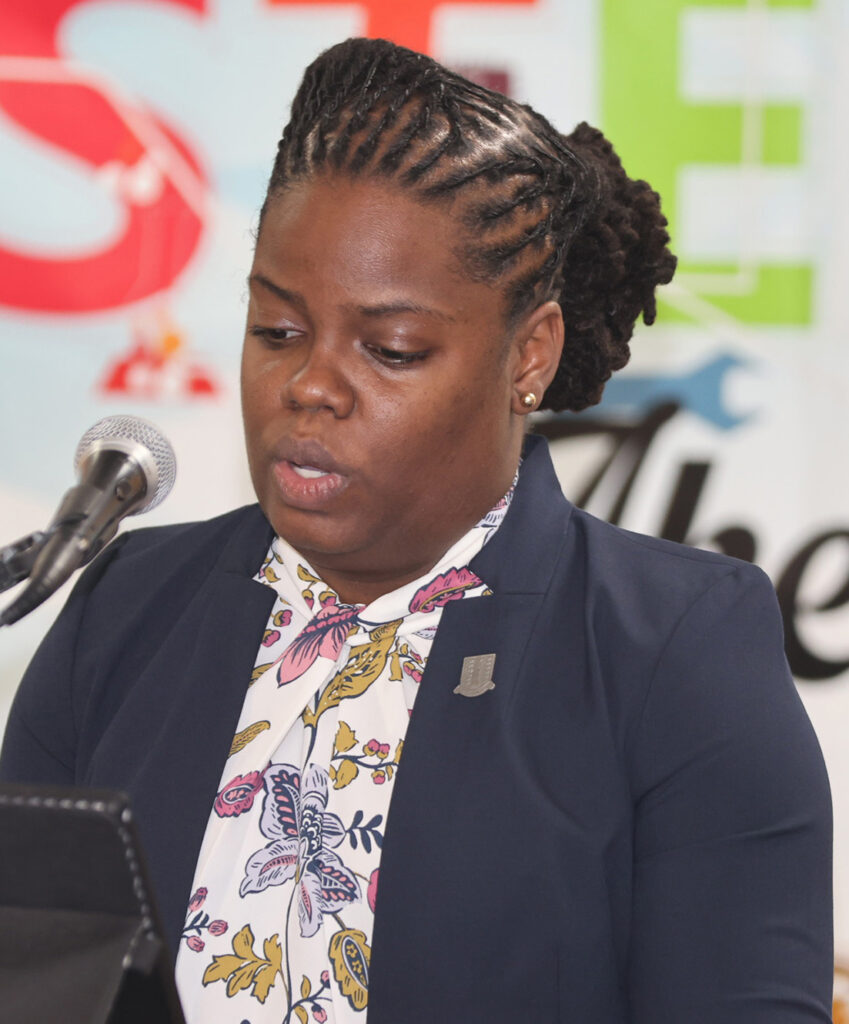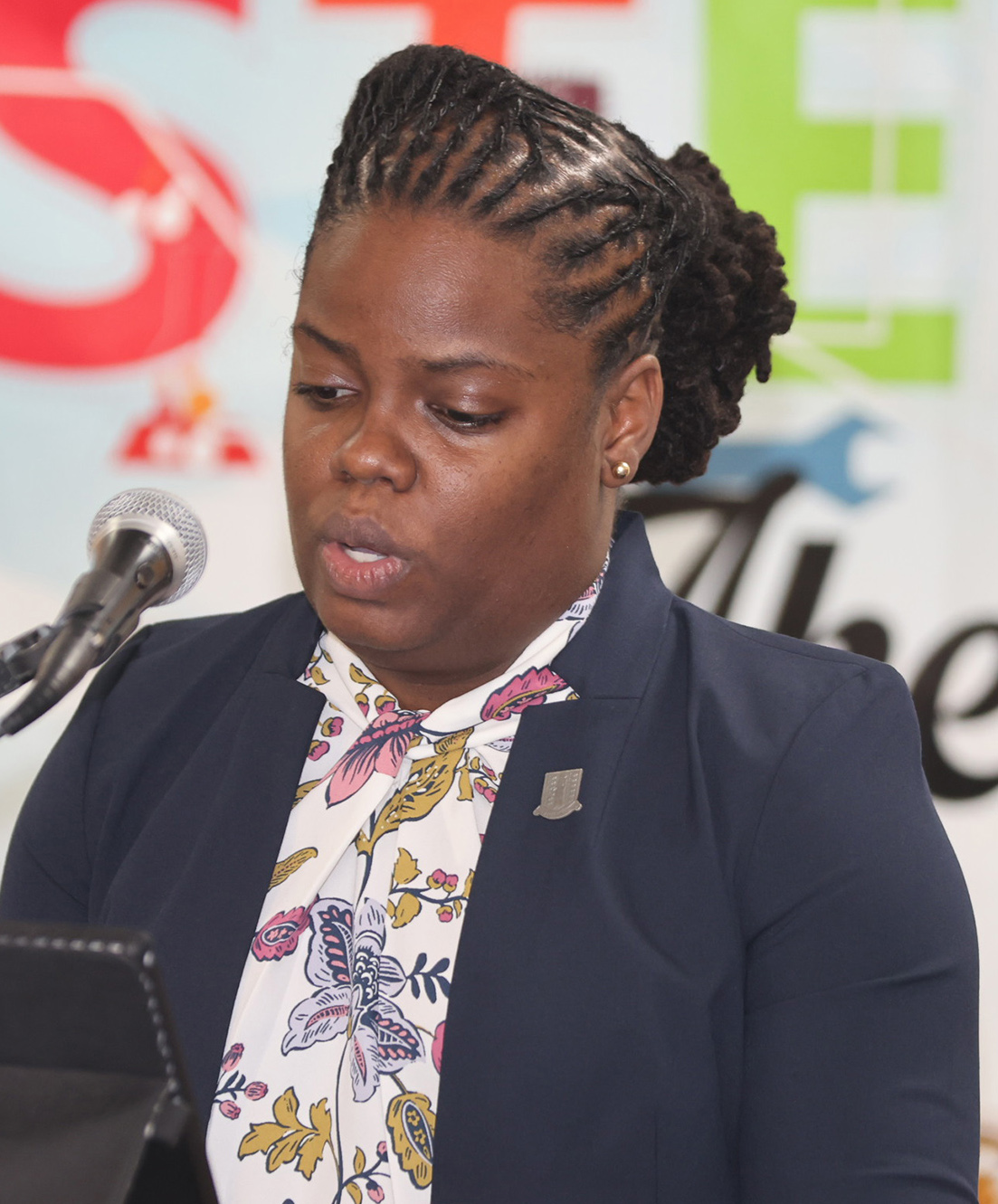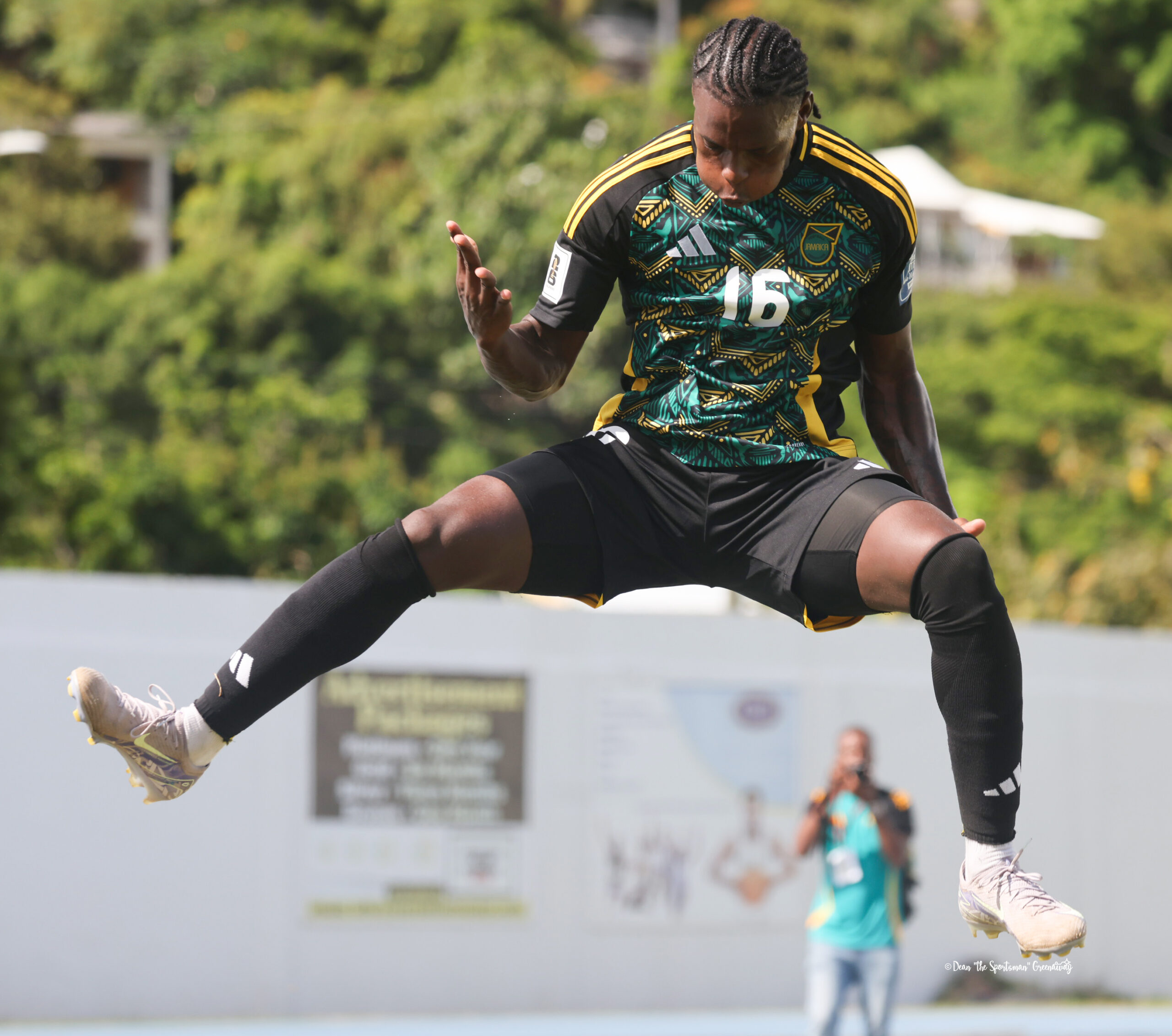By Dean “The Sportsman” Greenaway

Sports Minister Sharie deCastro, has debunked the notion that her government is only focusing on funding track and field and neglecting other sports, when she was among guests on Thursday’s Sports Beat Magazine on CBN 90.9 FM. At the time, she was announcing a wide range of funding initiatives benefiting the Department of Youth Affairs and Sports, sporting federations and associations and athletes at all levels.
deCastro said there are ‘certain narratives’ that are being perpetuated in the public regarding the Ministry’s focusing on athletics and ‘not seeking to support other sports.’ “It’s a narrative that I categorically debunk,” she said. “We sought to have sports as a line item in the budget in multiple ways since 2023, going into 2024 and now in 2025.”
During a meeting where they engaged sporting federations and associations, deCastro said it was explained that they’d be seeking to implement a new line item in the budget called “contributions to sporting organizations and federations” which they have since done. Organizations were requested to submit an annual proposal with dates, potential overseas travel, its grass roots program and how they planned to build out and support their athletes, whether grassroots or elite national athletes.
“We asked for these things to be submitted, so that the Ministry can evaluate it during the budget cycle, and then put funding in, in support of the following year, to be able to help the associations achieve their goals,” she explained. “And from the jump, athletics jumped on it. In athletics’ first year, they receive $50,000. Last year, they received $100,000, this year, they’re on track to receive the same, and what we need is for the executive boards of other associations and federations to really take up that opportunity, to engage with the government and receive and receive the support.”
She said that they did receive additional requests and off the top of her head, they helped with volleyball, cricket, swimming among others, and they have received more submissions this year and will be seeking to dispatch that funding. “But it’s incumbent on the federations and associations to get their internal organizations functioning to the point where they can meet the accountability measures of the government,” she said. “So that they can truly engage and receive the assistance to support the development of their sport.”
After becoming the Sports Minister, deCastro said that they had to take some strategic steps on the ministry’s level as well as through the budget process, to “really re-invigorate” youth and sports in the territory and the Dept. of Youth Affairs and Sports charged with ensuring that youth development takes place in the BVI. However, without funding, the mandate can’t be achieved. The reality is, she said, that for a number of years, the department “was challenged” by its annual budget being restricted, in terms of their ability to really “reach out into the community,” and really advance sports at all levels.
“Just by understanding, in 2023, the department’s budget was approximately $600,000 and that would include staff, rent and different things. There was very limited room to do programs, support athletes and athletic organizations,” she noted. “What we were able to do, is get that budget up to $2.1 Million and we’ve been really able to really restart activities in the Dept. of Youth Affairs and Sports. After a 10-year hiatus, we were able to bring back our after school programs—both youths and sports—and we now have sports taking place on the inter primary levels, the inter secondary levels and also the industrial leagues, so at all levels, sports is activated in the territory. We’ve really started to see a reinjection of capital. It has allowed the department through its funding, regarding resources and programing, to really achieve our mandate for sports development in the territory.”
Furthermore, deCastro said that the Cabinet passed a decision creating an “elite athlete program” that funds athletes who meet a set criteria which was enabled in 2024 for the first time and four of the eight athletes in the ‘Tier I” program, attended the Paris Olympic Games. A total of $205,000 was dispersed, with each athlete receiving $45,000. She said they expect another cohort this year and funding has been budgeted. “The way we have set it up, this is dedicated funding, once they meet the criteria annually, this funding must be dispatched, because Cabinet made a decision and there’s a line item in the budget that supports it annually,” she pointed out. “So, these athletes—some would have already started receiving it for this year—because they would have met that threshold.”
“Tier II” athletes receive up to $25,000 in funding. Separate from that direct annual funding that athletes and associations can get, and the elite athletes funding, deCastro said that they have engaged via the Dept of Youth Affairs and Sports, afterschool and summer school programs. She said they have partnered with associations and federations, they submit a proposal for their sport and they receive the funding to initiate that program.
“We depend on the technical expertise of the associations and federations, to run these programs for us,” deCastro said. “That’s another way that we are supporting the associations and federations and the development of grassroots sports.”
Additionally, deCastro said that in the Ministry’s budget, there’s $500,000 dedicated just to grants—whether to organizations or to athletes to be able to shore them up, she said. “We issue annual grants for students specifically. They submit a letter with their requisite information and for student athletes—seen as a priority area—for grants under the Ministry of Education, these athletes get the maximum of grant funding annually, which is $9,000, once they apply,” she said. “We have seen droves of students, currently studying as student athletes in the United States and other parts, who have benefitted from the grant funding through the Ministry of Education as well.”








